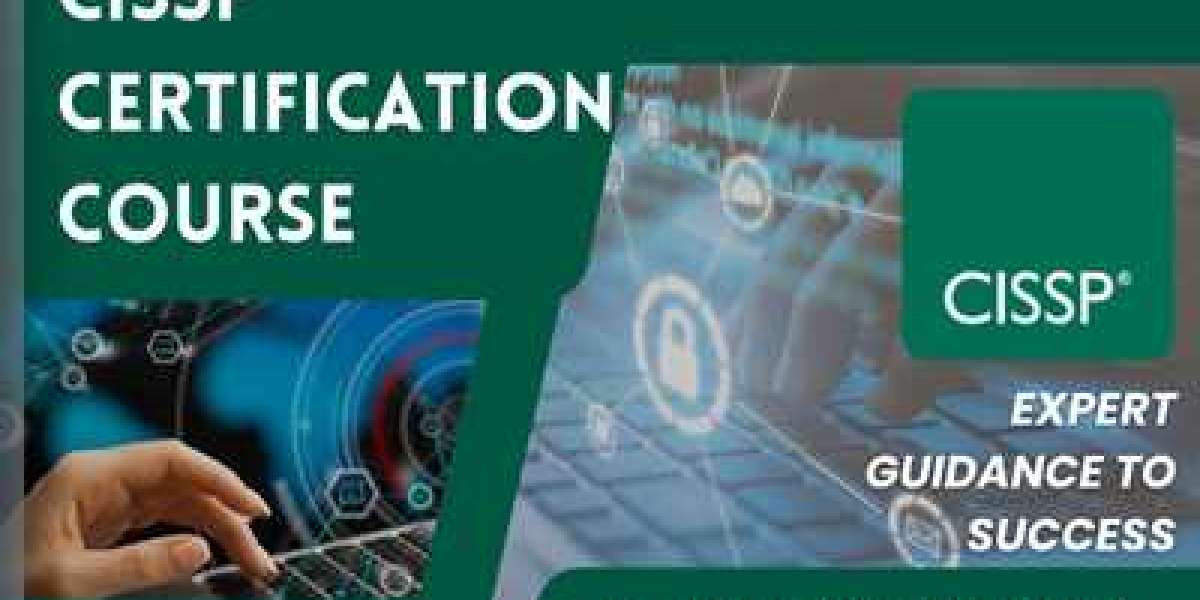In the dynamic and ever-evolving field of information security, the Certified Information Systems Security Professional (CISSP) certification is one of the most respected and sought-after credentials worldwide. Whether you're an aspiring cybersecurity professional or a seasoned expert looking to enhance your credentials, achieving CISSP status can open new doors to higher-level positions, better salary packages, and more recognition in the field.
In this article, we'll explore what the "https://www.sprintzeal.com/course/cissp-certification-training/chicago-il" target="_blank" rel="noopener noreferrer">CISSP certification in Chicago IL entails, the steps to achieving it, how to prepare, and what to expect from the exam.
What is CISSP Certification?
The CISSP certification is administered by the International Information System Security Certification Consortium, commonly known as (ISC)². It validates an individual's expertise in designing, implementing, and managing a best-in-class cybersecurity program. CISSP certification is globally recognized and regarded as a gold standard in the information security industry.
Holding the CISSP credential means that you have a comprehensive understanding of security architecture, engineering, and management, and have a firm grasp of the complexities involved in cybersecurity. It not only boosts your employability but also demonstrates a commitment to maintaining a high level of security proficiency in your professional career.
Who is Eligible for CISSP Certification?
To be eligible for CISSP certification, candidates must meet the following requirements:
Experience Requirement: You need at least five years of cumulative, paid, full-time work experience in two or more of the eight CISSP domains. The eight domains are outlined in the CISSP Common Body of Knowledge (CBK), which is a taxonomy of cybersecurity topics.
The eight CISSP domains are:
- Security and Risk Management
- Asset Security
- Security Architecture and Engineering
- Communication and Network Security
- Identity and Access Management (IAM)
- Security Assessment and Testing
- Security Operations
- Software Development Security
If you don't meet the experience requirement yet, you can still take the exam. However, you will earn the (ISC)² Associate designation and will have up to six years to gain the required work experience to become fully certified.
Endorsement: After passing the CISSP exam, you must be endorsed by a (ISC)² certified professional in good standing, verifying your professional experience.
Adherence to the Code of Ethics: All CISSP candidates must agree to the (ISC)² Code of Ethics and commit to continuing professional development throughout their career.
Why Pursue the CISSP Certification?
Career Advancement: CISSP is often a requirement for senior-level positions in cybersecurity, such as Chief Information Security Officer (CISO), IT Director, and Senior Security Consultant.
Global Recognition: As a globally recognized certification, CISSP enables professionals to work in different regions and industries worldwide.
Higher Salary Potential: Professionals holding a CISSP certification typically command higher salaries than their non-certified counterparts. According to various salary surveys, CISSP professionals can earn an average salary of $120,000 or more annually.
Comprehensive Knowledge: The CISSP curriculum covers a broad spectrum of information security topics, ensuring that certified individuals have a well-rounded understanding of the field.
How to Prepare for the CISSP Exam
1. Understanding the CISSP Domains
As mentioned earlier, the CISSP exam covers eight domains, each of which represents a different area of expertise in cybersecurity. Here's a brief overview of each domain:
- Security and Risk Management: Focuses on information security governance, risk management, compliance, legal and regulatory issues, and professional ethics.
- Asset Security: Deals with the protection of physical and digital assets, including data classification, ownership, and handling requirements.
- Security Architecture and Engineering: Covers the principles of security design, cryptography, and securing system components such as hardware and software.
- Communication and Network Security: Focuses on securing network architectures, communication channels, and devices.
- Identity and Access Management (IAM): Involves access control mechanisms, authentication methods, and identity management.
- Security Assessment and Testing: Discusses the methods for designing, performing, and analyzing security tests and audits.
- Security Operations: Covers the day-to-day operations of a security team, including incident response, resource protection, and disaster recovery.
- Software Development Security: Emphasizes the importance of building secure software applications and protecting software development environments.
2. Developing a Study Plan
Preparation for the CISSP exam requires careful planning, time management, and consistent study. Here's a practical approach to your preparation journey:
Assess Your Current Knowledge: Before diving into your studies, assess your current knowledge of the CISSP domains. Understanding your strengths and weaknesses will help you allocate more time to the areas where you need improvement.
Set a Study Schedule: Most candidates find that 3 to 6 months of focused study time is sufficient to prepare for the exam. Plan your schedule around your personal and professional commitments, and be sure to leave time for review sessions.
Use Multiple Resources: There are numerous resources available to help you prepare for the CISSP exam, including books, online courses, and study groups. Some popular study materials include:
- Official (ISC)² CISSP Study Guide
- Eleventh Hour CISSP: Study Guide
- CISSP Official Practice Tests
- CISSP All-in-One Exam Guide by Shon Harris
In addition to these materials, you may find it helpful to take an official (ISC)² CISSP training course, either online or in person. This type of training provides structure and guidance, helping you focus on key topics and exam strategies.
Practice Exams: Practice exams are a critical part of your "https://www.sprintzeal.com/" target="_blank" rel="noopener noreferrer">preparation. They help you familiarize yourself with the exam format, question style, and time constraints. Take multiple practice tests and analyze your results to identify areas that need more focus.
3. Staying Motivated and Focused
Preparing for the CISSP exam can be overwhelming, especially if you're balancing work and personal life commitments. To stay motivated:
Join a Study Group: Study groups offer a collaborative learning environment where you can share resources, ask questions, and gain different perspectives on difficult topics.
Track Your Progress: Regularly tracking your progress will help you stay on course. Create milestones to celebrate small wins, such as mastering a domain or scoring well on practice exams.
Reward Yourself: Setting short-term goals and rewarding yourself for achieving them can help maintain your motivation over the long haul.
What to Expect from the CISSP Exam
The CISSP exam is designed to assess both your knowledge and your ability to apply that knowledge in real-world situations. Here's what you need to know about the exam:
Format: The CISSP exam consists of 125-175 questions in a Computerized Adaptive Testing (CAT) format, where the test adapts to your performance by selecting harder or easier questions based on your responses. The exam is multiple-choice and scenario-based.
Duration: You have 4 hours to complete the exam.
Passing Score: To pass the CISSP exam, you need to achieve a scaled score of 700 out of 1000.
Language: The exam is offered in multiple languages, including English, French, German, Japanese, and others.
Post-Exam Process and Certification Maintenance
Once you pass the exam, you will need to complete the following steps to earn your certification:
Endorsement: As mentioned earlier, you'll need to be endorsed by a CISSP-certified professional who can verify your work experience.
Continuing Professional Education (CPE): To maintain your CISSP certification, you must earn 120 CPE credits every three years and pay an annual maintenance fee. This ensures that certified professionals continue to stay up-to-date with the latest industry trends and technologies.
Conclusion
Becoming a Certified Information Systems Security Professional (CISSP) is a rewarding but challenging endeavor. The certification not only validates your cybersecurity skills but also opens up numerous career opportunities. By understanding the CISSP domains, developing a solid study plan, and staying focused, you'll be well on your way to earning this prestigious certification. Remember, the journey to CISSP certification is a marathon, not a sprint—stay motivated, and success will follow!








